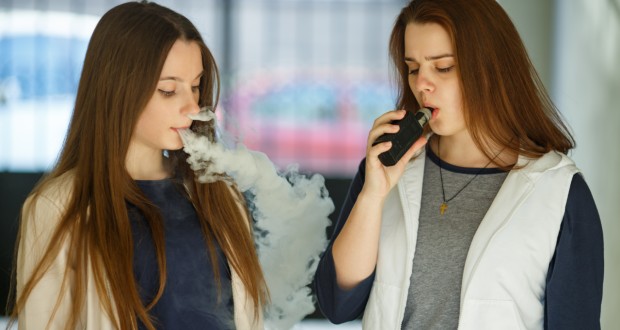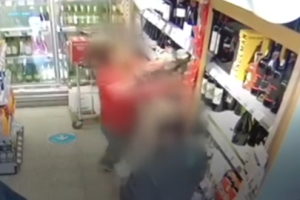Parents surveyed believe shops failing to check ID is main reason for sharp uptake in underage vaping. Three out of five parents don’t believe new £100 on-the-spot fines for retailers will stem the problem.
The new research commissioned by BAT shines new light on the challenges facing government as it looks to tackle the issue.
Based on a poll of 2,000 parents of secondary school children across the UK, focus groups also made up of parents and mystery shopping exercises, the research finds the vast majority of parents are supportive of ministers taking a more comprehensive direction in their plans to regulate the vaping sector.
89% of parents support a licensing regime for the sale of vapes, and 92% support mandatory checks on products imported into the UK.
“We recognise that traditionally, companies like BAT have been perceived as opposing regulation,” said Asli Ertonguc, the UK lead for BAT.
“We are clear on our responsibilities, and therefore want to have an open conversation about appropriate regulation that will tackle underage vaping while keeping vapes as a vital tool to help the UK reach its smokefree 2030 goal, an ambition that BAT supports.”
In January, the government placed a ban on disposable vapes at the centre of its strategy to tackle underage vaping, along with potential further restrictions regarding flavours marketed at children and further potential packaging requirements.
Legislation to introduce these changes in the form of the Tobacco and Vapes Bill was presented to Parliament on 20 March.
However, BAT’s survey suggests more than half (55%) of parents think that the main reason under18s are vaping is because shops are failing to check ID.
A comment from one focus group participant is said to have been typical of the beliefs of many parents.
“There’s a lot of unscrupulous shopkeepers. The shops’ walls are stacked full of them, like a sweet shop. Why doesn’t the government send people in undercover? Give them a couple of warnings, shut them down,” said the participant.
“One particular shop near me, if it’s school time, loads of kids are puffing away outside.”
BAT wants the government to consider subjecting vape retailers to a new licensing system, similar to that for those who sell alcohol, a measure backed by 89% of parents surveyed.
It also wants imported vapes to be subjected to stringent testing, proper enforcement of retailers to observe age verification protocols, and for shops to employ facial recognition technology that can identify underage purchasers.
BAT research suggests all these measures are heavily backed by parents. “Vaping is the key to unlocking the UK’s smokefree target,” Ertonguc added. “Whether you agree with a ban on disposable vapes or not, re-building trust in the product category is critical for achieving the smokefree goal.”
BAT’s mystery shopping exercise revealed that in 9 out of 10 cases, Challenge 25 age protocols were not enforced.
“Through our polling, there is significant support among parents for additional measures which BAT has proposed to limit the availability and use of vapour products by the underage” Ertonguc said.
BAT’s survey reveals parents want significantly harsher punishments for those who sell vapes to the underage.
The most popular first preference is for a fine of up to £100,000, a substantial increase on the current £2,500 levy. Almost one in three (32%) parents said this was their first choice, with nearly half (47%) placing it among their top three preferences.
A prison sentence of up to six months is one of the top three options for more than a quarter -27%- of parents. BAT’s research found that more than six in ten (61%) parents believe the government’s plan to give trading standards officers the power to issue ‘on-the-spot’ fines of up to £100 to shops in England and Wales that sell to anyone under the age of 18 is an insufficient deterrent.
Despite 90% of parents citing underage vaping as a concern, many of them are unclear about the current penalties facing retailers who sell vapes to under 18s.
Almost a third of parents –31% say fines of up to £100,000 for rogue retailers is their preferred sanction, in line with what is being proposed in France, and not the £2,500 that can currently be levied.
Over half (51%) think that retailers currently selling vaping products need a licence.
“As the largest manufacturer of vaping products in the UK, we believe there is a narrow window to get this right with the Tobacco and Vapes Bill,” Ertonguc said. “Put simply, parents want more to be done to tackle underage vaping, and so do we.”
 Talking Retail Grocery and product news for independent retailers
Talking Retail Grocery and product news for independent retailers






